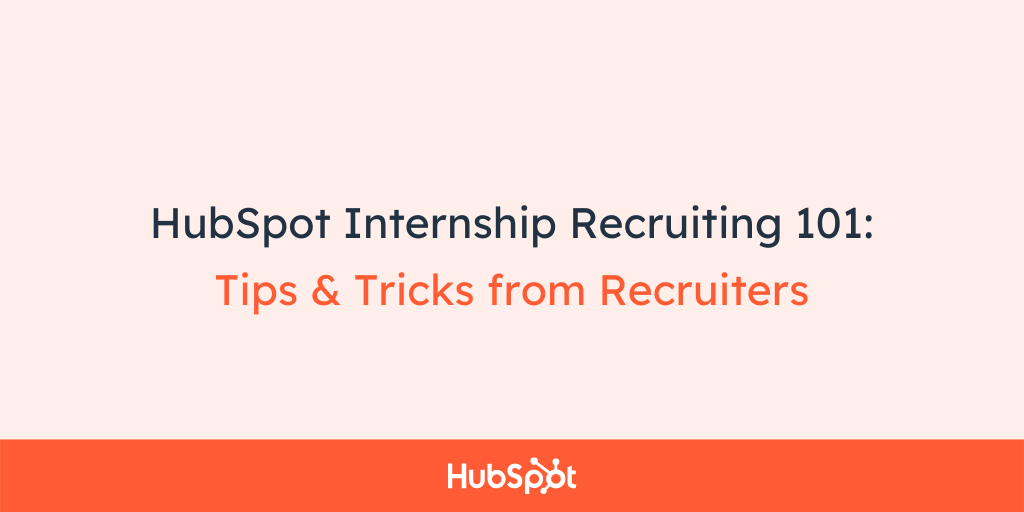

New opportunities and challenges are thrown at you every day at HubSpot, especially in recruiting. In the last two and a half years, I’ve hired for almost 20 distinct roles across our services, customer support, and finance teams. I’ve hired across levels of seniority, office location, and technical experience. I’ve learned that I have to be ready for anything, and this summer, I learned a tough lesson. I learned that I was not ready for the challenge of hiring another recruiter onto my own team.
You’d think that hiring for your own team would be easy -- you should know exactly what you want in terms of experience, competencies, and traits, because it’s your team and industry. You should also have a solid network within that industry to reach out to for help, or to even source from. Unfortunately, that wasn’t the case. The very same reasons I thought that hiring onto my team would be easy, actually made the process time-consuming and frustrating.
Recruiting as an industry has a low barrier of entry. That means that there are lots of opportunities for entry-level candidates to get jobs in recruiting, either at staffing firms or as a sourcer on corporate recruiting teams. There is no shortage of recruiters, especially in the Greater Boston area where I was conducting my search. The issue then becomes: What makes a good recruiter? And, how do I know one when I see one?
The tricky thing about good recruiters in the tech industry is that they have to exhibit some of the most important skills across many other fields of work. They need to have:
- The negotiation skills of a salesperson
- The customer-service mindset of an account manager
- The business knowledge of an operations analyst
- The technical acumen of a product manager
- The employer branding chops of a marketing manager
Needless to say, this is a hard combination to find. Just like hiring for other types of roles, compromises sometimes have to be made in terms of the candidate's experience. The question you have to ask is: Does this candidate have the traits needed to excel in this job with the training and resources provided? Do they have the bones to eventually be a remarkable recruiter?
After several unsuccessful months of searching for new recruiters, my team decided to come up with the following five key traits that all great recruiters have to help us narrow down our search:
- A strong sense of ownership: If your name is on it, you want to do it right (and quickly). You also understand the business impact of your work and the ramifications of a job done poorly.
- Adaptability: As a function, recruiting reacts to the needs of the business. Based on things like company performance, direction of the product, and attrition, your goals as a recruiter at a place like HubSpot are often a moving target. You must be comfortable with change and willing to thrive in chaos.
- Written and verbal communication skills: As a recruiter, you are often the one and only face of HubSpot to hundreds, if not thousands, of candidates in a given year. This is a huge impact that should not be taken lightly! Every interaction you have, whether internal or external, shines a light on your team and the company.
- Data-driven mindset: Recruiting, much like sales, is a funnel. In order to work smart (not just hard) it is super important to understand funnel metrics, conversion rates, and time to hire. Recruiting truly is a numbers game -- if you want to stay on top of your work, it’s very helpful to understand what you need to do to fill a specific role. Recruiters need the curiosity and drive to always want to be improving processes by fixing inefficiencies.
- Customer service mindset: As a recruiter, you have two groups of “customers.” Externally, your candidates are your customers. Great recruiters care deeply about candidate experience and the quality of every part of the process. They have real empathy about the possible frustrations of a job search. Internally, your customers are your hiring managers. These relationships are paramount to consistently making good hires. It’s important to be available, responsible, and accountable to the teams you support.
Once my team boiled down our search criteria and began to really look for these five key factors, we were able to target and hire some new team members who are already making a huge impact at HubSpot. The lesson learned here is that when hiring for non-technical roles, it's the candidate's high-potential and uncoachable traits that should be the main focuses of the search process. Trust yourself and your team to train smart and motivated individuals to be game changers in the business once they ramp up.
Recruiting Tips







